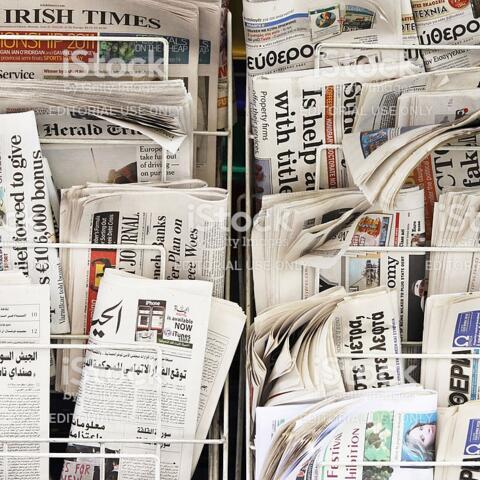The killing of Saudi journalist Jamal Khashoggi inthe Saudi consulate in Istanbul has sent shockwaves across the world. Khashoggi's case has resonated with journalists in Africa, who face challenges reporting freely.

“I come from a country, which is renowned to be a place where journalists are killed with impunity," says Omar Faruk Osman, Secretary-General of the National Union of Somali Journalists.
"In Somalia, journalists are targeted, killed by enemies of press freedom, but those who target journalists, they do not do what has happened to Jamal," he told RFI.
On 2 October Jamal Khashoggi, a critic of the Saudi ruling family, walked into the Saudi consulate in Istanbul and disappeared.
Turkish investigators suggest that he was carved up with a bone saw in a horrifying seven-minute execution.
"It’s beyond believing that humanity can lose value, that people can kill human beings, especially a journalist, like an animal," comments Geoffrey Mosoku, a writer with Kenya's The Standard newspaper.
"His only crime was to publish an article critical of the government," he told RFI.
For two weeks, Riyadh insisted that Khashoggi had left the consulate safely -- until 19 October, when it claimed that the 59-year-old was accidentally killed.
His case has resonated with journalists in Africa where press freedom remains a challenge.
Fears of copy-paste murders
"If the impunity surrounding the killing, the lying, the fabrication of the case of Jamal, if that succeeds," comments Osman, "then we are not going to be surprised that governments in Africa, who are very keen and thirsty for the blood of journalists will copy-paste or will replicate such an unacceptable act inside Africa."
Reporters Without Borders 2018 World Press Freedom Index painted a gloomy picture of media censorship and hostility to press freedom in most African countries, revealing they still have a long way to go.
"There’s a saying in Swahili, which says that when you see your colleague’s head being shaved, you should also prepare because you are next in line," comments Mosoku.
Government-backed attack
He knows all too well what reprisals can mean. His newspaper was attacked 12 years ago for publishing content deemed critical of the government.
"Our media was raided by government police officers and mercenaries brought from eastern Europe, who were leading the operation," he says.
Leaked US cables released by the whistle-blowing website Wikileaks later revealed that the late John Michuki, who was the Internal Security minister at the time had ordered the raid.
Khashoggi's death sets a new precedent, reckons Mosoku.
"Instead of raiding a media house, now these guys can come for you. They can come in your house, they can lure you anywhere, even in government offices and pick you."
Nowhere is safe
"They can hire mercenaries to carry out the operations, so that is another fear. Even if you’re not safe in your own country, you’re not sure that you are going to be safe in another country where you think the rule of law functions,” says the Somali journalists' union leader Osman.
While Turkish investigators have been able to uncover details of the alleged murder, including recordings of Khashoggi's last moments, African investigators would be at pains to do so, he reckons.
"If this can be done in Turkey, where all the technologies exist, what do you think about Africa, where forensic investigations, the technologies, all these things to uncover the truth will not be available, are not even available?"
African governments harass journalists
Another missing factor is outrage.
While Khashoggi's murder has sparked global condemnation, with American lawmakers and European politicians threatening sanctions, on the African continent leaders have remained "dubiously silent" on attacks against journalists, comments The Standard's Mosoku.
"You’ve seen in Egypt journalists were jailed, those from Al Jazeera and others, just because they are writing stories that the government is not comfortable with.
"Governments rarely do issue statements to condemn. More often than not, journalists are attacked by government systems, it might be the police, it might be the intelligence, it might be the military, so, they’re rare," he says.
Burundi journalist Jean Bigirimana from the Iwacu newspaper, for instance, disappeared two years ago, and is feared dead. No one has yet come forward to denounce his disappearance.
"When a coup happens in Africa, it’s very rare for African countries to talk about a coup. So if they can’t even talk about a coup, you don’t expect them to talk about an individual journalist who has been brutally murdered in any capital," insists Mosoku.
Turkey, which also faces criticism over its own record on press freedom, is demanding answers over Khashoggi's death and for his killers to be brought to justice.
African journalists will be watching how events unfold closely, to ensure there's no impunity for Saudi Arabia or their own governments, at home.
Daily newsletterReceive essential international news every morning
Subscribe